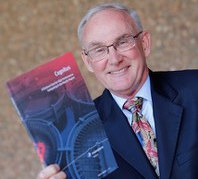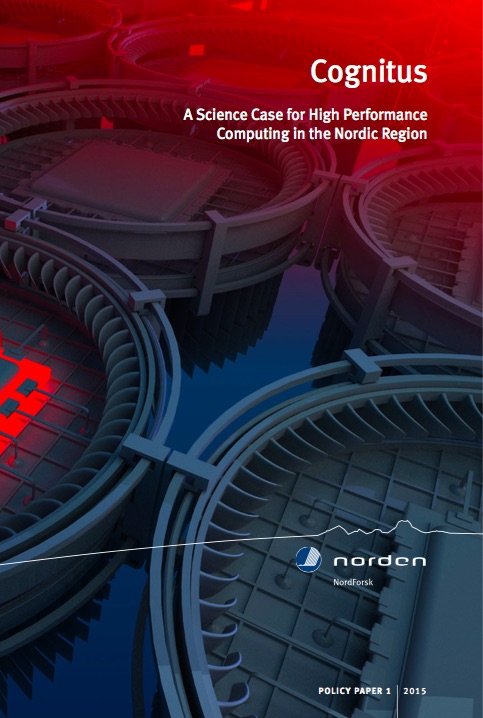How do Nordic researchers use supercomputing resources?
In the report “Cognitus, a Science Case for High Performance Computing in the Nordic Region”, Dr Rob Pennington has analyzed the use of high performance computing facilities and resources among Nordic researchers. He found that the research in the Nordic region that depends on computational capabilities is “clearly internationally competitive.”

In 2013 and 2014, two evaluations of different aspects of the Nordic high performance computing area recommended that the Nordic e-Infrastructure Collaboration (NeIC), which is a part of NordForsk and thus of the Nordic Council of Ministers, take a closer look at how Nordic researchers are using supercomputing resources. In response, NeIC engaged Dr Rob Pennington, former Deputy Director for the National Center for Supercomputing Applications at University of Illinois, to investigate this in order to identify the Nordic researchers using High Performance Computing (HPC) and to map where and how they were getting access to these resources. The investigation resulted in the Cognitus report, which contains seven findings and eight recommendations. These provide decision-makers in the Nordic countries with valuable insight that can help to make Nordic HPC globally competitive.

The Cognitus report - the short version
We asked Dr. Pennington about his work on the Cognitus report during three intense months in Oslo, and here are his answers:
What do you consider to be the most important finding in the Cognitus report?
“Two aspects are extremely important: Research in the Nordic region that depends on computational capabilities is clearly internationally competitive. Continued investment in excellence in computational research and education on national scales is vital to continuing this success. The second aspect is for the national funding agencies to recognize that the international aspects of the researchers’ needs must also be supported, both for the research and for the computational research infrastructure.”
Seen through American eyes, where do Nordic researchers perform well in HPC?
“The level of collaboration associated with HPC that is demonstrated in the Nordics is very high and this seems to me to be based on an approach of taking a longer view in dealing with problems and also opportunities. This is interesting because the processes may be different in each country but the end results are generally viewed as consistently good.”
What did you find to be the biggest surprise?
“Each of the different countries has a very different approach to providing and supporting computational research infrastructure. The researchers in each country are extremely effective at using the available infrastructure in support of their scientific program and in augmenting it through collaborations and international projects. Initially, it was a bit of a surprise that each of the different approaches seemed to be equally effective for the researchers, but in hindsight, this is a reflection on the resilience, adaptability and capabilities of the researchers in optimizing their use of the available research infrastructure. A goal in each country is an effective research infrastructure and the approaches all seem to evolve to meet the researcher’s needs.”
Where do you see our weakest spot?
“The opportunity for innovation and exploration of new technologies in software and hardware is one topic that might be considered as an area that could use more attention. This is a very broad issue that is common in HPC where there is a strong focus on providing consistent access to reliable resources. The space and support to work with tools or systems that are not yet reliable or even well understood is typically small, and distributing information about the work to interested and relevant researchers is a challenge.”
Is there anything in your findings that calls for a deeper investigation?
“There are many good next steps. One that would be interesting and challenging would be to develop a deeper understanding of the extent of the collaborations that depend on HPC and the effects on other research topics.”
In the fall of 2015, Dr Pennington will continue his engagement with NeIC. His main role will be to follow up on recommendations on HPC collaboration from the report, look into opportunities for data collaboration, and advise the NeIC across the full spectrum of eInfrastructure activities.
Cognitus report, A Science Case for High Performance Computing in the Nordic Region
